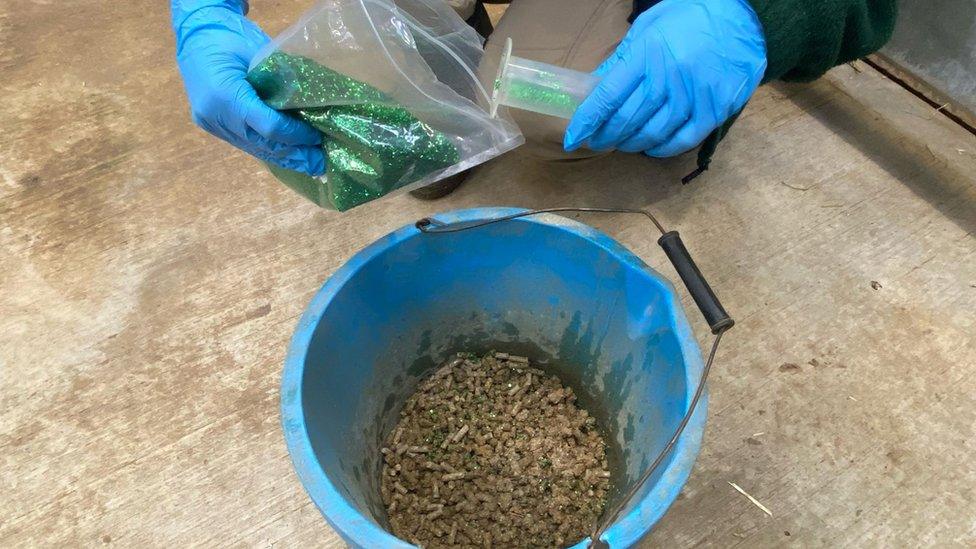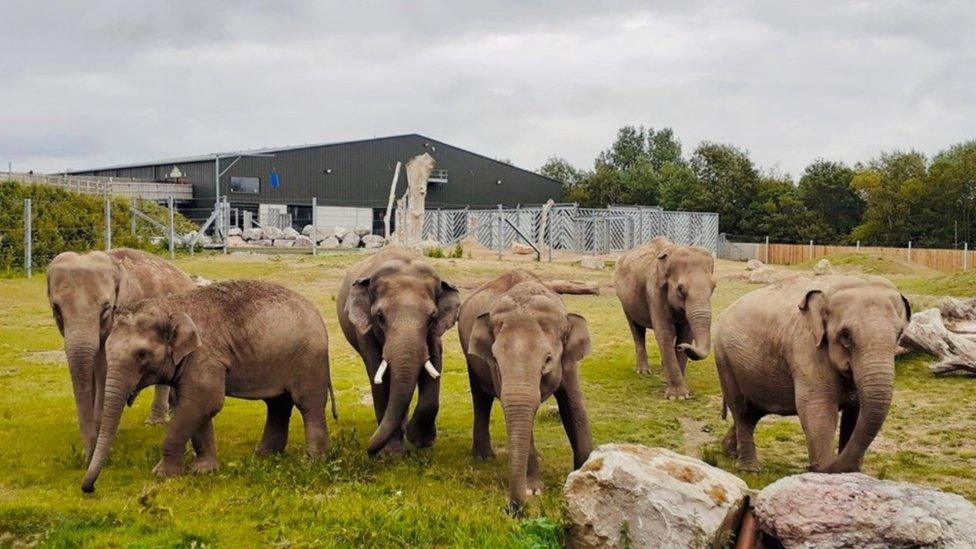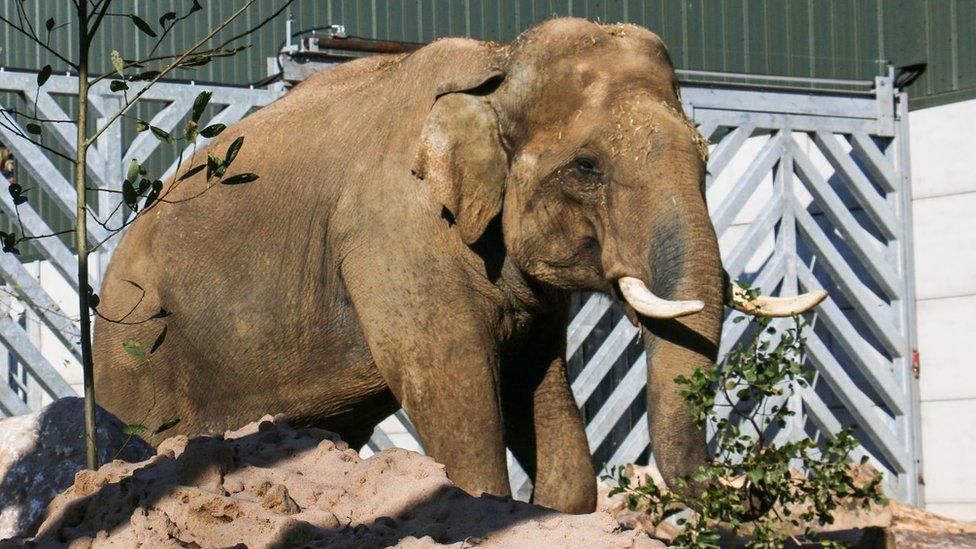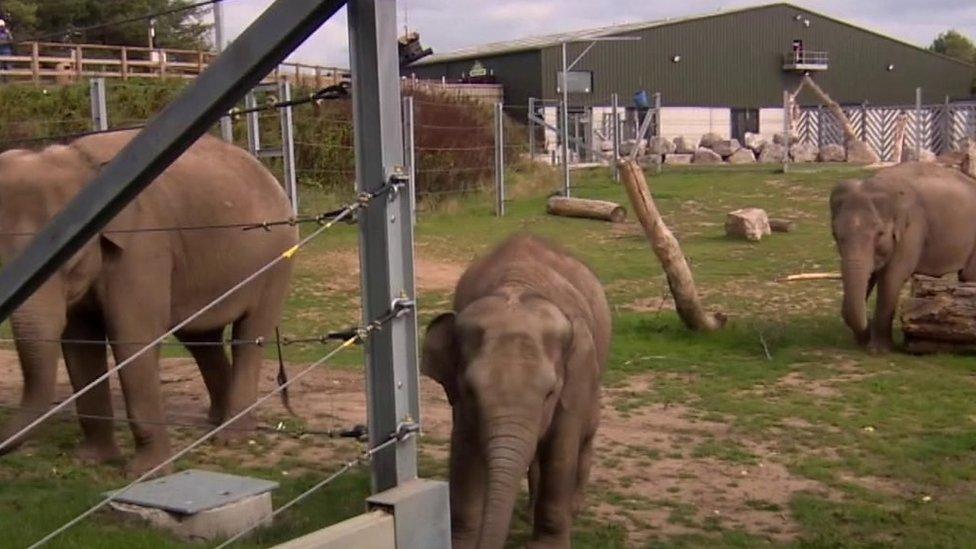Blackpool Zoo collects sparkly elephant poo for hormone testing
- Published

The edible glitter is being added to the food of the female elephants to help identify their dung for testing
Elephants at a zoo are tucking into food infused with edible glitter so that zookeepers can identify their sparkly dung for testing.
Blackpool Zoo has been feeding the coloured glitter to female elephants to help track their reproductive cycles and check if they are pregnant.
The study is part of the zoo's Project Elephant, which aims to preserve the Asian elephant species.
The zoo said it was "excited" to get the results.
The dung was collected under a recommendation from the European Endangered Species Programme.
Tara, Noorjahan and Esha, all female Asian elephants, have taken part in the research.
Their stool samples were collected twice a week and sent to a research laboratory at Chester Zoo for hormone analysis.

The research is part of the zoo's efforts to preserve the Asian elephant species, known at Blackpool Zoo as Project Elephant
The Asian elephant species is classed as endangered by the International Union for Conservation of Nature (IUCN) and has seen its population decline by at least 50% over the last three generations, Blackpool Zoo said.
Adam Kenyon, section head at the zoo, said he was excited to see the results from the most recent samples, which were expected to arrive in the coming weeks.
He said: "We have used edible glitter to track hormone levels of many of our animals, so it is a tried and tested method for these types of investigations.
"The team at Chester Zoo have been working hard to analyse the samples through a science called faecal endocrinology and we are hoping to get the findings soon.
He said the zoo was playing a "crucial role" in the global effort to protect and conserve Asian elephants.
Residents of the zoo's elephant enclosure include Kate, who was the first moved to the zoo in 2017, Minbu, Noorjahan, Tara and Esha, who all joined in 2018, and the zoo's first male elephant, Emmett, who arrived in 2019.

Why not follow BBC Lancashire on Facebook, external, X, external and Instagram, external? You can also send story ideas to northwest.newsonline@bbc.co.uk, external
- Published28 October 2019

- Published6 September 2018
